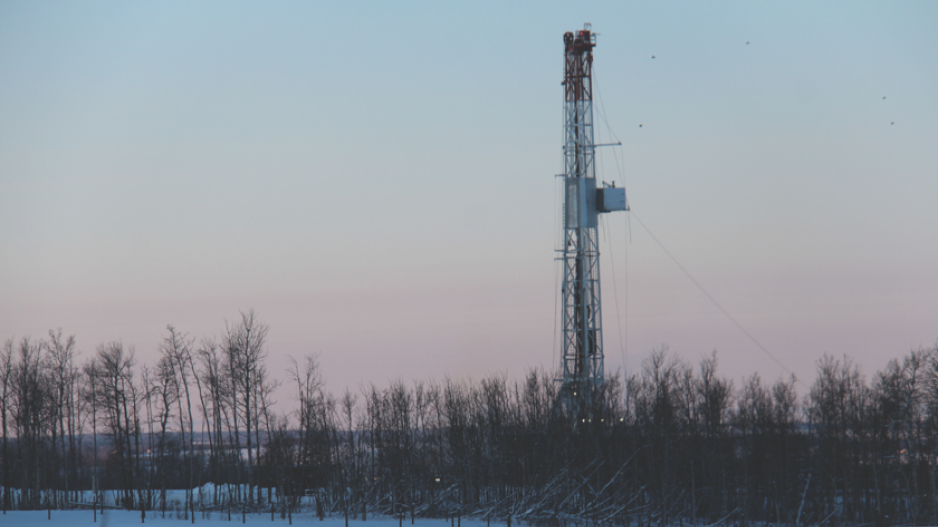A moratorium of sorts on natural gas activities in the North Montney formation north of Fort St. John has sent a shiver through the oil and gas industry in Calgary.
But at least one industry association executive says that the measures – though sure to drive up costs for companies operating in the area and make some areas off limits – are necessary to ensure the construction of the $1.4 billion North Montney Mainline gas pipeline project.
The B.C. government, through the BC Oil and Gas Commission, last week posted an industry bulletin that declares areas of the North Montney either out of bounds for oil and gas activities altogether or otherwise restricted.
The restrictions are part of an agreement signed between the Blueberry River First Nation and provincial ministries of Forests and Energy, Mines and Petroleum Resources.
“There are critical areas where new surface disturbance will not be permitted or will be restricted and other areas where development activities will be managed,” the bulletin states.
The agreement describes the varying levels of restrictions in three areas. Activities related to the North Montney Mainline would be allowed.
The project is being built by Nova Gas Transmission Ltd., a subsidiary of TransCanada Corp. (TSX, NYSE:TRP). It was originally proposed for the now-cancelled Pacific NorthWest LNG project but might now supply at least some of the gas for the $40 billion LNG Canada project.
It’s unclear why the new measures are being implemented, and the commission won’t make the agreement public. The Canadian Association of Petroleum Producers says the agreement was negotiated without industry consultation.
The Blueberry River First Nation has a major treaty infringement claim against the B.C. government and is a signatory to Treaty 8, which guarantees in perpetuity the rights of signatories to carry out their traditional livelihoods in the area covered by the treaty, including hunting, trapping and fishing.
In the treaty infringement claim, filed in 2015, the Blueberry River First Nation says decades of forestry, mining and oil and gas drilling and pipeline construction have severely curtailed those rights.
Ellis Ross, BC Liberal MLA for Skeena, said the new interim measures are just the latest sign from the NDP government that it plans to abide by the United Nations Declaration on the Rights of Indigenous Peoples (UNDRIP) in its regulation of resource industries in B.C.
Despite repeated assertions by B.C. ministers that UNDRIP does not give First Nations a veto, a recent directive on open-net salmon farms in the Broughton Archipelago suggests that the provincial government is prepared to grant veto powers even if the UN declaration doesn’t grant them.
“Trying to resolve those cumulative impacts is honourable,” Ross said. “But given the NDP’s lack of support for LNG [liquefied natural gas] and the willingness to give First Nations a veto, I think that precedent is going to spread across different jurisdictions.
“Anything that’s got to do with the natural resource sector, everybody will be watching to see what gets shut down next in B.C.”
Dan Allan, president of the Canadian Society for Unconventional Resources, said the new measures have some companies in Calgary worried.
“Will it cost the industry more? Yes, it will. But I don’t think it’s prohibitive, in my opinion. But I know the numbers are being run by a lot of organizations right now, and trying to get a better feel for exactly what that may mean.”
He added that the measures may be a necessary concession to allow the North Montney Mainline project to proceed. The North Montney Mainline, needed to bring gas from the region into the North American pipeline system, gets special consideration to proceed under the new measures.
“This is something that needs to be done,” Allan said. “It is, though, going to be requiring you to restrict your areas of operations to very site-specific parts of this land. Nothing is completely off limits, but if you’re going to do something in certain areas, you have to make sure you rectify other areas to have a zero effect.
“Talking to some companies, they are concerned, but they also recognize that this is likely the way we have to manage traditional lands from First Nations, especially in areas that could have very robust development.
“If we get positive FID [final investment decision] from LNG Canada, for example, areas like this would be targeted for pretty potentially heavy development, especially with the North Montney Mainline coming through there, and the First Nations want to say, ‘Hold it – this is not business as usual. We will want to have some safeguards.’”
Pat Ward, CEO of Painted Pony Energy Ltd. (TSX:PONY), said some companies might be affected by the agreement on new drilling but doesn’t think Painted Pony will be affected that much.
“It’s more delay probably more than anything,” he said. “It costs money if you’re delayed. But from what we see, it doesn’t seem that onerous at this point to us.” •




